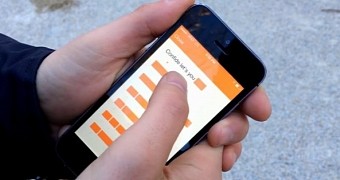Confide, the secure messaging app that White House staffers use to gossip on the President, is being sued over falsely advertising its privacy features.
The situation is a bit complicated. Confide is an app that allows users to send messages that self-destruct after a few seconds, which is something other apps do as well.
What sets Confide apart from other messaging apps, however, is the fact that it reveals messages a line or two at a time, including the name of the sender. This is done to protect your communications from those peeking at your phone on the bus, for instance. Then, just like Snapchat, it alerts you if the recipient tries to screenshot your message.
These protections are great, but they're not foolproof; that's because Confide also has desktop apps.
"Absent these protections, Confide knows that it cannot deliver on its promise to consumers that communications sent through it will be confidential," the complaint reads.
The lawsuit claims that the Windows and Mac apps circumvent these very protections that Confide markets. Basically, if you're using the Confide app on a computer, it displays the full message, including the name of the recipient. What's more, you can also take a picture of the screen without any issues.
Not surprisingly, Confide dismissed the claims, saying they're unfounded and without merit. "We look forward to responding to this frivolous complaint and seeing this case swiftly thrown out of court," a spokesperson said on the matter.
Half-right
The situation is a bit more complicated, however, because the folks filing the lawsuit may be right, at least in part. Messages on the desktop apps are, indeed, displayed all at once if you hover your mouse over them. This makes it extremely easy to just use your phone to snap a picture of the message, but that's something that no app can prevent. If you move the cursor away from the message, it will appear redacted, as it does in the mobile app.
Taking a screenshot on the desktop doesn't work, though. Instead of the text, you'll get a blank rectangle, which is great. What's not that great, however, is the fact that the app doesn't notify the sender that someone tried to grab a screenshot of their message. This happens when you try to take a screenshot on mobile, but it seems the feature didn't cross over to the desktop.
Hopefully, at the very least, this lawsuit will get Confide to fix this issue. It remains to be seen whether the case will go further or the judge will decide to throw it out.

 14 DAY TRIAL //
14 DAY TRIAL //